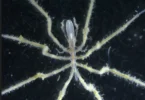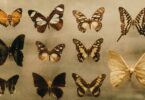Pollinators play a vital role in keeping our gardens and ecosystems thriving. Without these hardworking creatures, many plants wouldn’t be able to produce fruits, vegetables, or seeds. But which pollinators are the most essential for your garden?
Let’s explore the top pollinators and how you can support them.
Bees: The Ultimate Pollinators

Bees are among the most efficient pollinators, responsible for pollinating about 75% of flowering plants. They carry pollen from flower to flower as they collect nectar, ensuring that plants reproduce successfully.
Some of the best garden-friendly bees include honeybees, bumblebees, and solitary bees like mason bees.
Why Bees Are Essential to Our Survival – Bees do more than just pollinate. They play a crucial role in global food production and biodiversity.
Butterflies: Graceful Garden Helpers

Butterflies are not just beautiful—they are excellent pollinators too! While they are not as effective as bees, their long proboscis allows them to reach deep into flowers, transferring pollen as they feed. Monarchs, swallowtails, and painted ladies are some of the most common butterfly pollinators.
Hummingbirds: Nature’s Tiny Messengers

Hummingbirds are vital pollinators for tubular flowers that other pollinators may not reach. Their rapid wing movements and long beaks allow them to drink nectar while transferring pollen from flower to flower.
If you want to attract hummingbirds to your garden, consider planting bee balm, trumpet vine, or salvia.
Beetles: Ancient Pollinators

Beetles have been pollinating plants for over 100 million years! They may not be the most delicate pollinators, but they play a significant role in pollinating magnolias, water lilies, and spicebush. If you want to attract pollinating beetles, opt for large, bowl-shaped flowers with a strong scent.
Moths: Nighttime Pollinators

Moths, especially species like the hawk moth, are crucial nighttime pollinators. They are particularly drawn to pale or white flowers with a strong fragrance, such as jasmine and evening primrose. Moths help ensure continuous pollination when other pollinators have retired for the night.
How to Support Pollinators in Your Garden
- Plant a variety of native flowers to attract different types of pollinators.
- Avoid using pesticides that can harm bees, butterflies, and other beneficial insects.
- Provide a water source, such as a shallow dish with pebbles, for pollinators to hydrate.
- Offer shelter by incorporating bee hotels, butterfly houses, and dense foliage for nesting sites.
Pollinators are the backbone of a healthy garden, each contributing in unique ways to plant reproduction. By understanding which pollinators are most important and taking steps to support them, you can create a thriving, pollinator-friendly environment.








